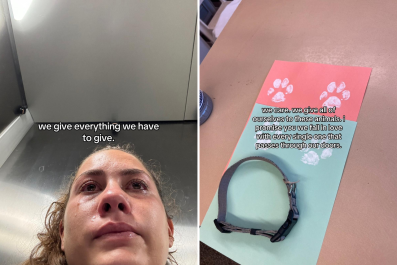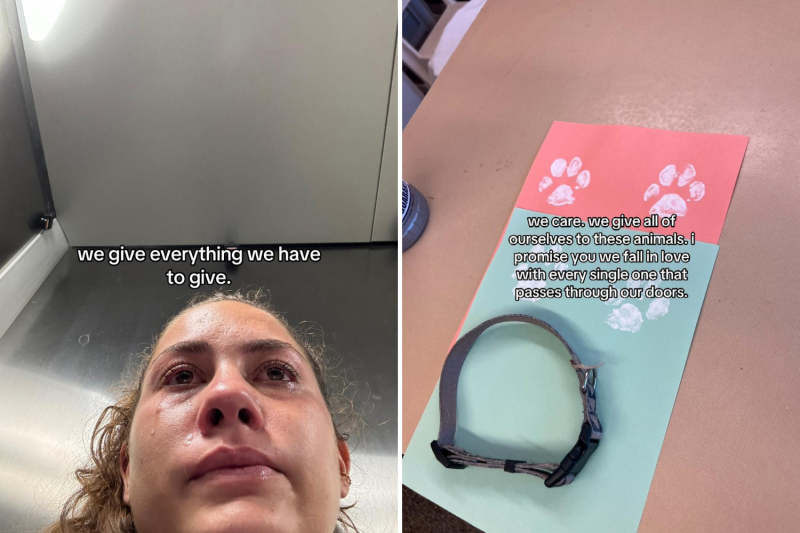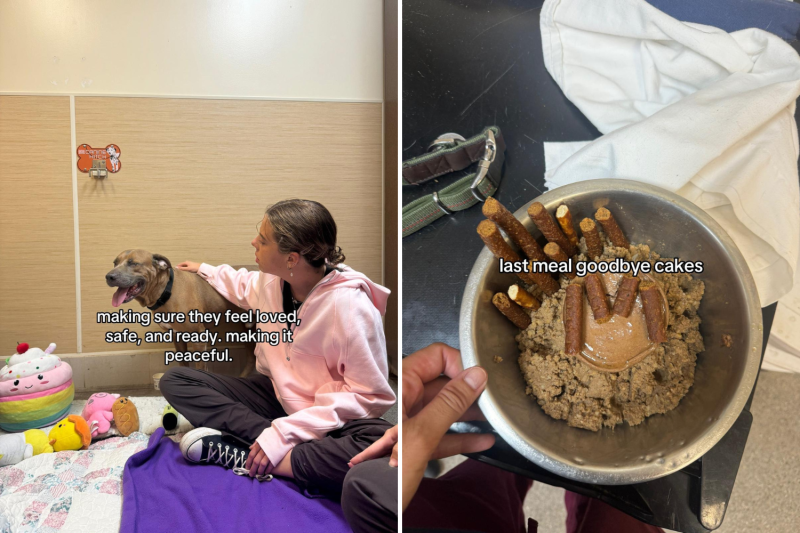
What Really Happens in 'Kill Shelters'? Worker Reveals Truth Behind Kennels
When Ellie Chavez Pickard arrives at work each morning, her shift begins with an urgent routine. The 22-year-old animal caregiver starts at the Hawaiian Humane Society in Honolulu at dawn, tending to dogs and cats, many surrendered or left at the shelter's gates overnight.
It's a job filled with compassion but shadowed by a daunting reality: euthanasia, a practice she believes is often misunderstood by the public.
In a recent TikTok video that garnered hundreds of thousands of views, Pickard shed some light on what goes on at so-called kill shelters. This term, she believes, misrepresents the spirit of the workers, who care deeply for the animals.
"We give everything we have to make these animals feel loved and safe," Pickard told Newsweek. "Even in their final moments, we're there, holding them, giving them treats and making sure they don't feel alone."
Pickard's video comes at a critical time for shelters across the U.S. In 2023, animal intakes reached 6.5 million, up 4 percent from the previous year. By the end of 2023, about 850,000 animals had been euthanized—15 percent more than in 2022. Open-admission shelters, like the Hawaiian Humane Society, often bear the heaviest burden, accepting every animal regardless of behavioral or medical needs.

'Even in Their Final Moments, We're There'
The staff cares for the animals as long as possible, turning to euthanasia only when animals suffer from severe health problems or pose safety risks. "We start at 6 in the morning and don't stop," Pickard said. "There's feeding, cleaning, wellness checks and enrichment activities like training, walks and toys. We also notice when an animal is declining."
For dogs and cats that struggle in the shelter environment, Pickard's team implements behavioral plans using treats and office time with staff to help stressed animals feel more at ease.
Despite these efforts, myths about shelters persist. Many believe euthanasia occurs merely because of a lack of space, but Pickard said, "We don't euthanize for space. Even when every kennel is full and we're setting up pop-up crates in hallways, we still don't do it."
Many shelters operate with managed or limited admission policies with medical or behavioral criteria, unlike shelters like the Hawaiian Humane Society that accept all animals.
"Every shelter plays a role, but the choice to refuse animals makes a big difference," Pickard explained. "Open-admission shelters take in those with tough cases or serious health issues."

The emotional toll of Pickard's job is high. Saying goodbye to animals she has worked with for months is one of the hardest parts. A 2023 report in Psychology Today said that animal control officers are more likely to die by suicide than the general population, experiencing high rates of burnout and "compassion fatigue."
"For every animal that doesn't make it out of the shelter, there are hundreds that do," Pickard said. "Being able to share their quirks with new owners, seeing them go off to a better life—that's what makes this worth it."
When it comes to helping, Pickard emphasized straightforward steps: spay and neuter pets, adopt instead of buying from breeders and think about the long-term commitment of bringing an animal home. "Animal welfare is a community-wide issue," she said. "The shelter crisis won't end without community support."
Pickard hopes her message prompts empathy—not just for the animals but also for those who care for them under the most difficult circumstances. "If I have to be the one to hold a dog's memory or remember a random, unwanted cat that nobody else would, then I'll do it gladly," she said.
